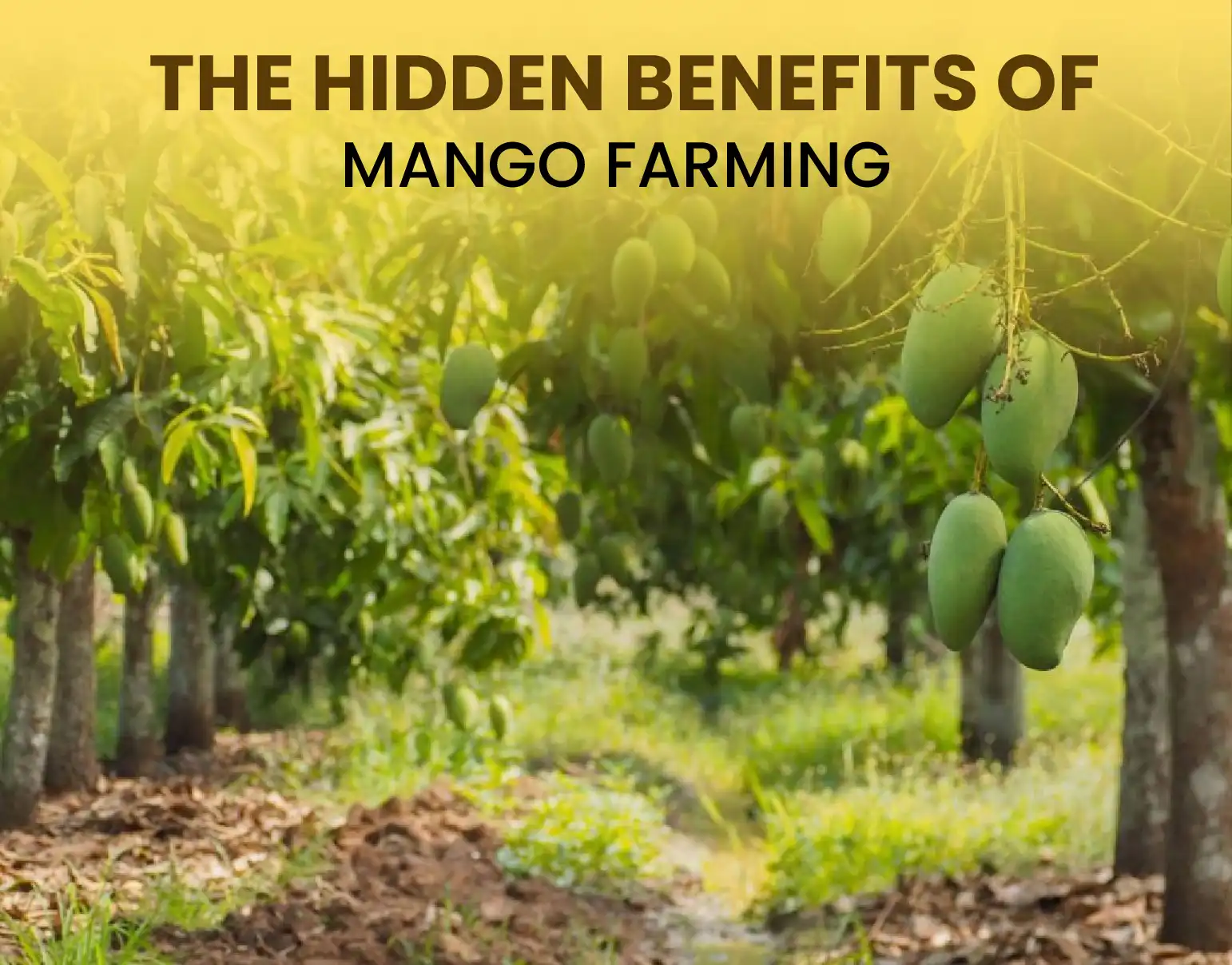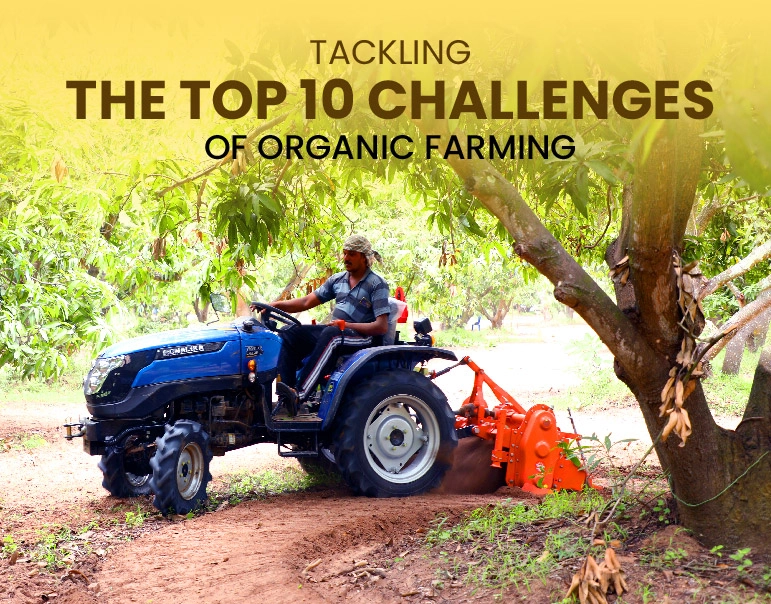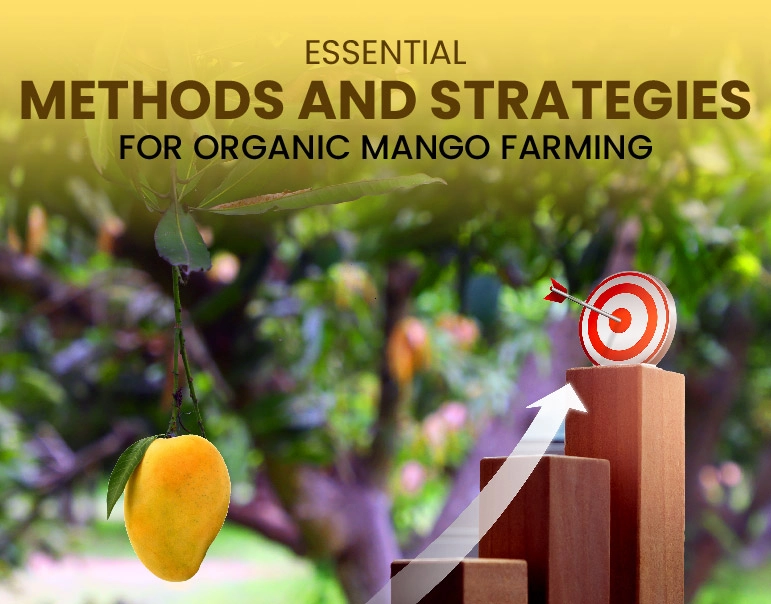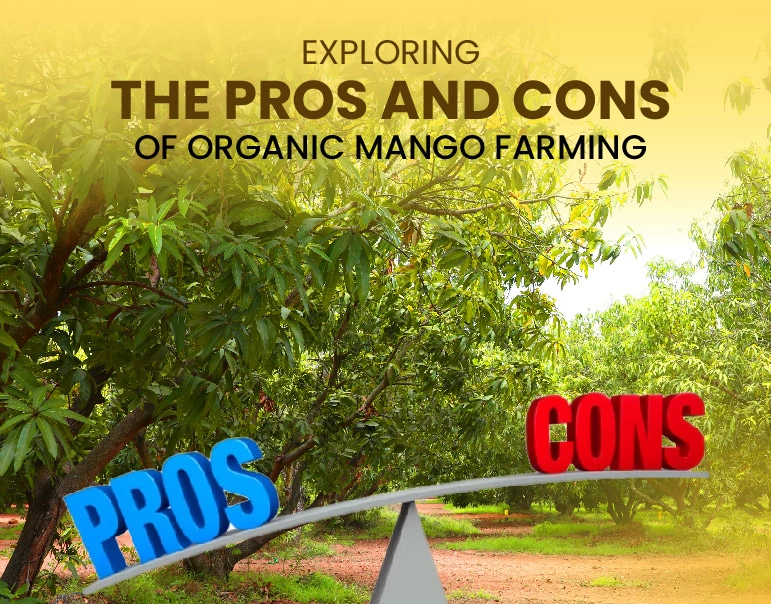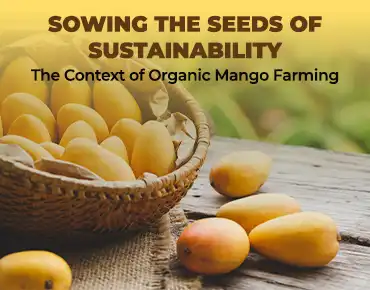Local Impact through small-scale eco-farming innovations
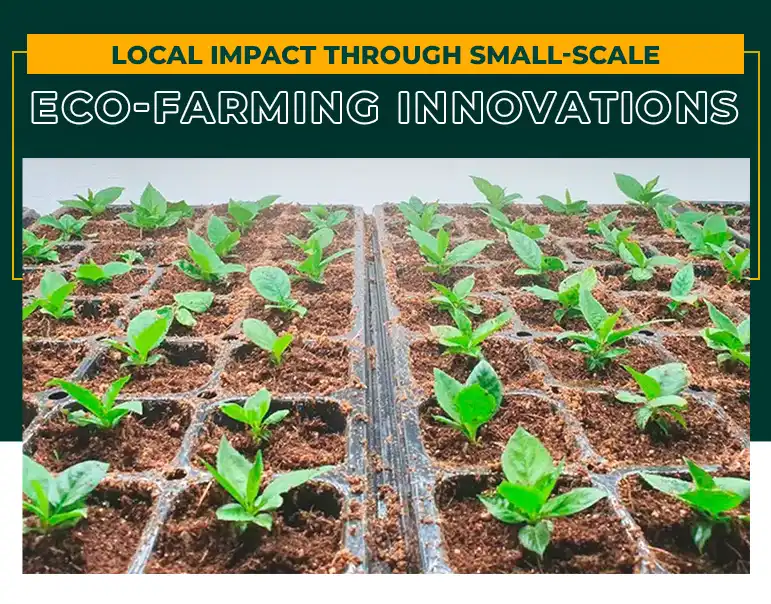

Agriculture plays a significant role in supporting local businesses and building sustainable food systems. Particularly small-scale eco-farming presents a transforming approach to create social, financial, and environmental effects. These farms not only preserve natural resources but also give communities healthier food, jobs, and environmental consciousness by concentrating on low-input, sustainable practices.
Small-scale eco-farming technologies are having a local impact by creating sustainable ecosystems, which in turn improves food security, lowers carbon footprints, and enhances community well-being, as discussed in this blog.
Small-scale eco-farms' embrace of regenerative agriculture ideas is among their most important contributions. These farms aggressively improve the soil, boost biodiversity, and restore ecological balance, therefore transcending traditional organic methods. Cover cropping, crop rotation, composting, and agroforestry improve soil fertility, lower erosion, and thereby minimize the demand for chemical fertilizers.
While enhancing their resilience to climatic threats such as droughts and floods, local farms using regenerative techniques help create better ecosystems.
By selling directly to communities via farmers' markets, farm stands, and Community-Supported Agriculture (CSA) programs, small-scale eco-farms give local food systems first priority. By eliminating intermediaries, these direct-to-consumer methods ensure that farmers receive fair compensation for their goods. Reduced transportation costs and carbon emissions also follow from shorter supply chains.
Buying from nearby environmentally friendly farms lets customers actively support the local economy while still enjoying fresher, seasonal food. Particularly during supply chain interruptions, this distributed method enhances food sovereignty.
Adopting organic farming and low-input methods, small farms are setting examples. Eco-farms emphasize the use of natural pest management, biofertilizers, and indigenous farming knowledge, whereas industrial agriculture sometimes relies heavily on synthetic inputs. Mulching, intercropping, and vermicomposting further reduce the farm's environmental impact.
This method guarantees better food free of chemical traces, satisfying the rising demand for organic products. By lowering pollution in nearby water bodies and preserving biodiversity, it also fosters environmental care.
Small-scale eco-farming projects generate employment in rural communities through operations such as packaging, distribution, and value-added processing, in addition to on the farms themselves. Many environmentally friendly farms combine educational initiatives or agro-tourism to provide guests with practical knowledge of sustainable farming and other income sources.
This entrepreneurial side gives young people in rural areas fresh possibilities outside of conventional farming and motivates more farmers to adopt sustainable practices.
Small-scale environmentally friendly farming offers a local buffer for food security while climate change disturbs world agriculture. Unlike monoculture farming, which is quite sensitive to environmental shocks, small farms generally mix their crops to guarantee year-round output.
For example, mixed-cropping methods, which produce several crops simultaneously, distribute the risk of crop failure. Furthermore, enhancing resilience is the interaction of cattle with crops, which stimulates nutrient cycling. These farms play a crucial role in ensuring the availability of food, even in the face of unpredictable weather patterns or disruptions to global food supplies.
Through hands-on activities and seminars, many eco-farms engage nearby businesses, schools, and volunteers, thereby promoting environmental education. These projects help people to develop a better awareness of the need for sustainable agriculture and enable them to produce their own food or follow environmentally friendly household habits.
By organizing events, farm-to-table eating experiences, and eco-retreats, several small-scale farms also provide venues for social contact, thus strengthening the ties within the community.
Ecofarms use carbon-efficient techniques to actively help slow down climate change. Growing crops next to trees, agroforestry helps capture carbon dioxide from the atmosphere, therefore lowering the total carbon footprint. Farms running on sustainable energy sources—such as solar irrigation pumps—minish greenhouse gas emissions even further.
These farms help to promote a more sustainable food system generally by concentrating on local sales and sustainable methods, therefore reducing the need for long-distance transportation and energy-intensive farming.
By processing their crops into value-added goods like organic jams, pickles, juices, and herbal teas, small eco-farms sometimes exceed the selling value of raw vegetables. Several farms also specialize in heritage varieties, speciality herbs, or exotic fruits to appeal to discriminating consumers in niche markets.
Particularly in metropolitan markets where consumers search for handcrafted, premium foods, these value-added goods boost profitability, lower food waste, and open new business prospects.
Several small farms use agroforestry, which combines crops with native trees and shrubs to replicate natural ecosystems. In addition to boosting biodiversity, this approach helps to rehabilitate nearby habitats for pollinating species, including bees and birds.
By improving water retention in the soil, agroforestry also helps to reduce erosion and droughts, therefore lessening the effect of farming on the nearby surroundings.
Eco-farming is becoming more and more important to governments, which also provide incentives to small producers following sustainable methods. Low-interest loans for infrastructure expansion, grants for solar irrigation systems, and subsidies for organic certification make eco-farming more financially feasible.
These rules guarantee that small-scale farms play a bigger part in local economies and national food security, therefore helping to promote the change from conventional farming to environmentally friendly methods.
Focusing on sustainability, community involvement, and climate resilience, small-scale ecofarming ideas are revolutionizing agriculture. These farms provide answers to some of the most urgent problems of contemporary agriculture, from regenerative techniques enhancing soil quality to local employment generation and carbon footprint reduction.
Eco-farming offers a route toward a more sustainable future in a society afflicted with environmental and food security problems. The local and worldwide advantages of small-scale farming will keep expanding as more people and communities adopt these methods, therefore producing a better, greener, and more resilient earth.

